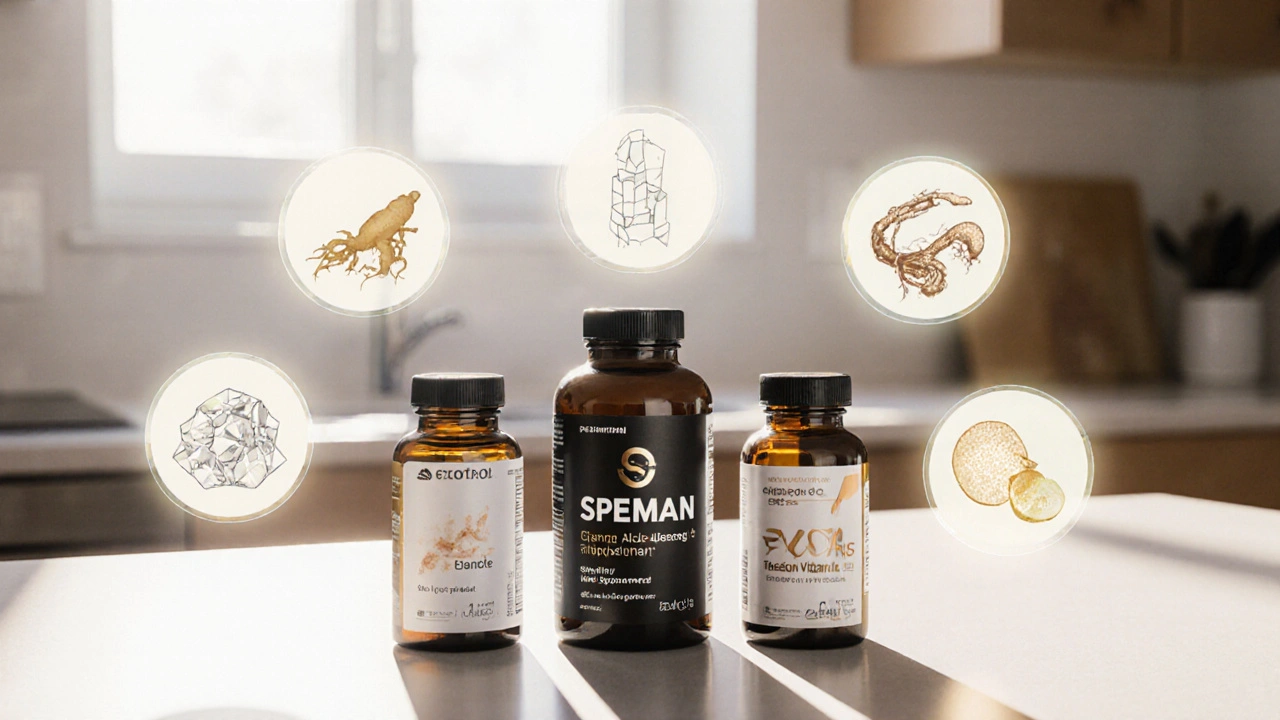If you’re looking for a way to improve sperm health without drugs, you’re in the right place. A lot of men wonder if food, habits, or a few herbal supplements can make a real difference. The good news is that many natural approaches have solid backing and are easy to add to daily life.
First things first—your everyday habits matter more than you think. Getting enough sleep (7‑9 hours) helps hormone balance, and regular moderate exercise keeps testosterone steady. Aim for activities like jogging, swimming, or brisk walking a few times a week; intense training can actually lower sperm count, so keep it balanced.
Nutrition is another key factor. Foods rich in zinc (oysters, pumpkin seeds, beef) and selenium (Brazil nuts, turkey) are linked to higher sperm concentration. Antioxidant‑packed fruits and vegetables—especially berries, citrus, and leafy greens—protect sperm from oxidative stress.
Avoiding heat to the testicles is often overlooked. Tight underwear, hot tubs, and long laptop sessions on your lap can raise scrotal temperature and impair production. Choose boxers over briefs and keep laptop use on a desk.
Alcohol and smoking are well‑known culprits. Cutting back on alcohol to a few drinks per week and quitting smoking can improve both count and motility within a few months. If you vape or chew tobacco, ditch those habits too.
Stress management rounds out the lifestyle box. Chronic stress spikes cortisol, which may suppress testosterone. Simple practices like deep breathing, meditation, or a short walk after work can keep stress in check.
When it comes to natural supplements, a few herbs stand out. Ashwagandha (Withania somnifera) has been shown in several studies to raise testosterone and improve sperm motility. A typical dose is 300‑600 mg of a standardized extract taken daily.
Maca root (Lepidium meyenii) is another popular choice. Users often report better stamina and higher sperm volume. Mix 1‑2 teaspoons of powdered maca into a smoothie or take 500 mg capsules.
Fenugreek (Trigonella foenum‑greacum) contains saponins that may increase testosterone. A daily 500 mg supplement is common. Tribulus terrestris is sometimes added for its libido‑boosting reputation, but research on sperm quality is mixed—use it if you tolerate it well.
Vitamins and minerals are the foundation of any supplement plan. Vitamin C (500‑1000 mg) and vitamin E (400 IU) act as antioxidants, protecting sperm DNA. Vitamin D deficiency is linked to lower sperm count, so a 2000‑IU daily supplement can help, especially in winter months.
Coenzyme Q10 (CoQ10) at 200 mg per day has been associated with improved sperm motility in several trials. It’s a safe addition for most men and also supports overall energy production.
Before you start any supplement, check with a healthcare professional, especially if you’re on medication. Quality matters—look for third‑party tested products to avoid contaminants.
Putting these pieces together—better sleep, balanced diet, reduced heat exposure, and a few targeted herbs—creates a solid natural sperm enhancer plan. Most men see improvements within three to six months, but patience is key because the body needs time to produce healthier sperm.
Remember, natural approaches work best when combined with a healthy lifestyle. Keep an eye on your progress, stay consistent, and you’ll give your fertility the best possible boost without relying on prescription drugs.

Compare Speman with top male fertility supplements, see ingredients, evidence, price, and learn how to pick the right option for better sperm health.
Read More© 2026. All rights reserved.